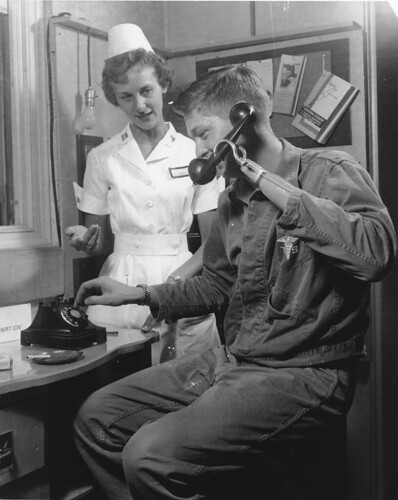The days when a demanding day on the nursing floor involved wrangling with doctors and assisting in surgeries are over. Today, an effective nurse has to be on top of the latest gadgets, gizmos, trends, and changes in the medical field. Knowing and understanding how new technologies integrate into the nursing field can make the difference between a successful and rewarding nursing career and a strenuous, tedious fight to stay relevant in the brave new world of tech heavy medicine. Here are four career tips to help you keep abreast of new developments in the technologies that affect every aspect of your duties!

1) Keep up with the literature.
Nurses have to attend continuing education courses anyway, so why not turn a necessity into a virtue? By learning how the evolving technology in the medical field may affect you, you’ll be able to more easily integrate it into your daily routine when it shows up on your floor. Not only will it simplify your life because you’ll already be familiar with the broad view of what these new devices are and what they do, but it will make you appear more proactive and hence valuable to your superiors!
2) What’s in vogue at your hospital?
Some hospitals are almost completely hardwired. Nurses use PDAs, iPads, and similar technology for everything from checking off rounds to noting vital signs for a patient. These are then sent wirelessly to the floor computer, digitizing the “paperwork” aspect of the job and making it faster and more efficient for nurses to get from one task to another quickly. Finding out what technologies are most popular at your hospital and becoming as familiar with them as possible, even asking for extra training on specific programs if necessary, shows you take your career and responsibilities seriously.
3) Understand the limitations.
All technology has its faults, failings, and drawbacks, and any machine (particularly a high-tech computerized one) can create as many problems as they solve. If you know what the potential problems with a given piece of equipment are, how to recognize them and what to do when they occur, you can minimize the interruptions caused by tech fails on your floor. Technology is there to help, not hinder, but sometimes all the possible problems and hidden errors in a given piece of equipment aren’t given due consideration. By knowing the limitations, you can more effectively integrate new technology into your department and set yourself apart as a leader.
4) Trust your instincts.
No matter how nifty or elegant new technology becomes, it’s going to be very difficult to replace the intuition, knowledge, and skill of a dedicated nurse. Part of understanding technology is knowing when to ignore it and rely on the skills that have served nurses for centuries. At the end of the day, your ability to use technology may have to take a backseat to your own training. A machine can’t get fired if it doesn’t make the right call, but you can.
Technology is a wonderful tool, but it is just that: a tool. Your judgment and knowledge of the technology your hospital uses and the advances that are on the horizon make all the difference in whether or not the technology you have available can be used to its full potential. These tools may not exist for your benefit, but with a little creativity you can make them work for you. You don’t have to be a technophile to use medical technology effectively, but by following these tips, you can make yourself more valuable to your patients, your colleagues, and your hospital.
Anne Kelley is a surgical nurse and guest author at www.best-nursing-schools.net, a site with guides to top-rated online nursing degrees.

